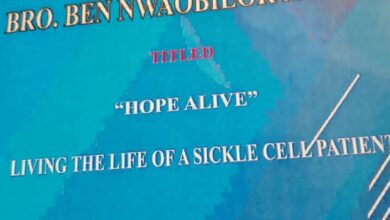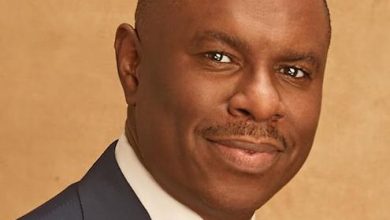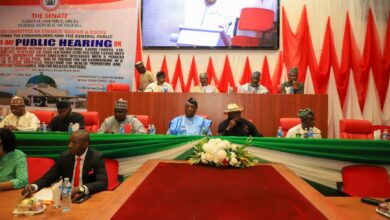
By Mike Egware
At the first National tobacco control budget advocates meeting organised by the Nigeria Tobacco Control Alliance (NTCA) in April 2023, participants analysed the dangers that dearth of funding posed to Nigeria’s tobacco control efforts.
Participants expressed worry that while tobacco control efforts in the country are undeniably dependent on donor funding (which are hardly enough to meet the challenges of implementation of tobacco control policies) the tobacco industry has cashed in on the situation, signing memorandum of understanding and fostering partnerships with government agencies to create a conflict of interest that weakens government resolve to regulate the tobacco business.
It must be clearly stated that funding is required for enforcement of policies such as the new Graphic Health Warning (GHW) on tobacco products packs. Funding is required for interagency collaboration, sensitization, and awareness creation across the different segments of the society.
Agencies such as the Federal Competition and Consumer Protection Commission (FCCPC) which has carried out some sensitization activities aimed at getting Nigerians to understand the benefits of the graphic health warning policy is still hampered by funds to go beyond a handful of states. The Nigeria Police and the Nigeria Security and Civil Defence Corps (NSCDC) that are also crucial to enforcing the policy are equally constrained financially in deploying men to the field to identify and arrest violators of the law. The National Orientation Agency (NOA) which is saddled with communicating government policies also suffers a lean budget.
The identified funding gaps leave the ministries and agencies of government open to industry inducements which usually come in form of requests for collaboration. Such collaboration ultimately counteracts Article 5.3 of the World Health Organisation Framework Convention on Tobacco Control (WHO-FCTC) which urges Parties to protect their public health policies from the commercial and other vested interests of the tobacco industry that come in the guise of Corporate Social Responsibility (CSR) and philanthropic gestures.
Among the tobacco industry entities that have cashed in on the existing lacuna, the British American Tobacco Nigeria (BATN) takes the lead. The BATN Foundation (BATNF) has been very visible in key sectors of the nation where it has been promoting partnerships with State governments and public institutions.
In the agricultural sector the Foundation has been very prominent in providing so-called support for implementation of different projects including FADAMA clusters that are littered across virtually every state of the federation.
The Foundation has also been advancing an agricultural entrepreneurship initiative with the National Youth Service Corps (NYSC) under its Farmers for Future (F4F) Agricultural Entrepreneurship Grant. Under the scheme it claims to provide equity-free finance and other associated support to young people with viable Agri-Firms as they grow their businesses.
One of the most publicized engagements of the Foundation is the annual Lagos Farm Fair, which is a collaboration with the Lagos State Ministry of Agriculture. The farm fair, which is held annually, is always an opportunity for glowing talks about how the company believes and has been working with government and public institutions in addressing Nigeria’s food crisis.
In many instances, products with the company’s logo and colours are displayed by local farmers and even celebrated in the media to portray collaboration and corporate responsibility. This is in clear contravention of the NTC Act 2015, and the obligations Nigeria signed up to under the FCTC in 2005.
Such brazen displays of so-called partnerships that weaken the regulation of the tobacco industry are only possible because the Nigerian government is yet to prioritize tobacco control as requiring adequate funding.
A paltry N4.7 million allocated to tobacco control in the 2023 national budget reinforces this assertion. Advocates see the measly sum dedicated to tobacco control as a far cry from what the Federal Ministry of Health and relevant agencies tasked with implementing Nigeria’s tobacco control laws need to hit the ground running.
What makes Nigeria’s case particularly peculiar is that opportunities for funding tobacco control exist and are provided for under the National Tobacco Control Act 2015.
Part 3, Section 8 (1) of the Act provides for the creation of the Tobacco Control Fund which “shall consist of monies made available by the Federal Government from annual budgetary allocation approved by the National Assembly.”
Another source of funding recommended in the Act are subventions from any of the governments of the Federation to meet the stated objectives of the Act.
Although the Fund was set up in 2021 and a dedicated account opened for it in the Central Bank of Nigeria (CBN), the political will and sagacity to maximize the opportunity to ensure a sustainable funding regime for tobacco control is yet to be seen. Of particular urgency is the need to remove clogs in the way of levying tobacco manufacturers as a polluter pays sort of principle.
It must be reinforced that the Federal Ministry of Health is primarily responsible and must lead the way in standing up for Nigerians and ensuring that the necessary resources needed to combat the tobacco epidemic is prioritised in the national budget and other statutory sources.
Knowing how the industry circumvents policies, the funding regime should also be fool proofed through monitoring, evaluation and impact assessment mechanisms to guarantee an efficient and sustainable regime of tobacco control and regulation in the country.
Until the funding issue is addressed, the tobacco burden on the healthcare system and the Nigerian economy at large will remain a nagging issue.
Egware, a public affairs analyst, writes from Ilorin, Kwara State











